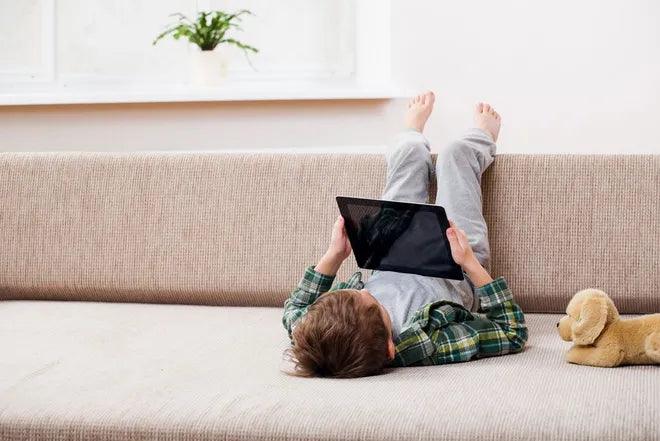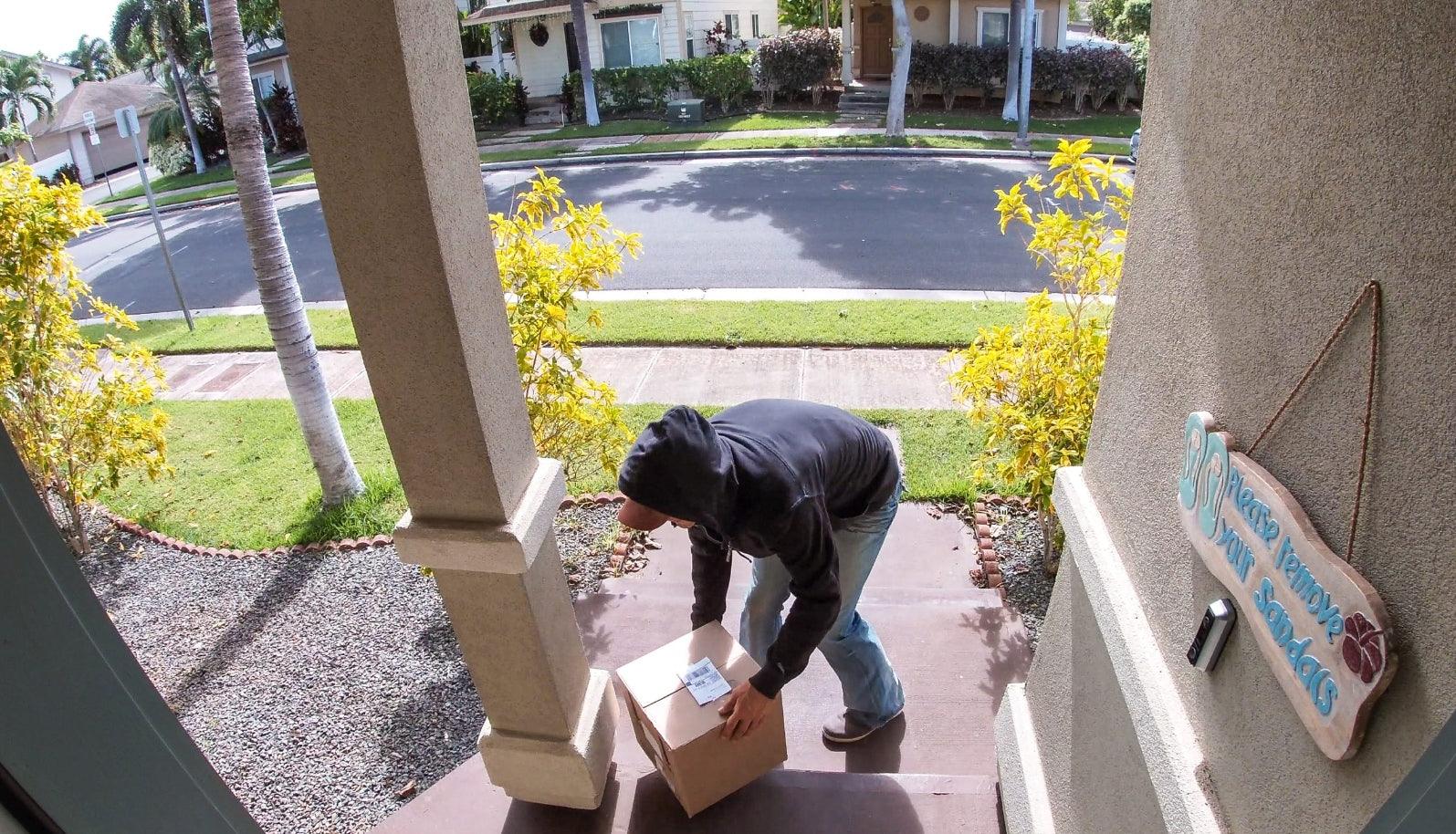As children grow, a common question many parents grapple with is: at what age can kids stay home alone? This decision isn't straightforward and involves considering multiple factors such as the child's maturity level, the duration of time alone, and the safety of the neighborhood. In this article, we'll explore the appropriate age for kids to stay home alone, the potential risks involved, and how parents can mitigate these risks with proper precautions and the use of modern security technology.
What Is the Appropriate Age for Kids to Stay Home Alone?
Determining the right age for a child to stay home alone varies widely depending on the legal requirements in your area, as well as the individual child's maturity and comfort level. Generally, many experts suggest that children around 12 years old may be capable of staying home alone for short periods, such as after school until a parent returns from work. However, some states have specific laws about the minimum age, which can range from 8 to 14 years. Ultimately, the key factor is assessing your child's readiness and ensuring they're prepared for the responsibility.
3 Questions to Ask Yourself to Assess Your Child's Readiness
Determining if your child is ready to stay home alone involves more than just considering their age. Reflecting on their maturity, confidence, and safety knowledge can guide you in making an informed decision. Here are three key questions to ask:
-
Does your child follow instructions well and make good decisions?
-
Is your child comfortable with the idea of staying alone and confident in handling minor emergencies?
-
Does your child know basic safety rules, such as not opening the door to strangers and knowing how to call emergency services?
After reflecting on these questions, you'll have a clearer picture of whether your child is prepared to stay home alone. This self-assessment helps you make an informed decision, ensuring your child's safety and your sense of security. If your child meets these criteria, they might be ready to handle the responsibility; if not, more preparation might be needed.

Potential Risks of Kids Staying Home Alone
Leaving kids home alone does come with its share of risks. Awareness of these risks allows parents to take proactive steps to ensure their child's safety.
Physical Risks
-
Accidents: Kids might injure themselves while cooking, using household tools, or engaging in rough play. Without adult supervision, even seemingly simple tasks can lead to accidents.
-
Health Emergencies: Children might not know how to handle sudden health issues or injuries. For example, a minor cut could become serious if not treated properly, and a child might not recognize the symptoms of an allergic reaction.
Security Risks
-
Strangers: There's always the risk of strangers approaching the home, whether in person or through the internet. Kids might not recognize potential dangers, such as someone posing as a delivery person or a friendly neighbor.
-
Burglaries: An empty house might be more attractive to potential burglars. If a child is alone, they might not know how to react if they hear someone trying to break in or if they see suspicious activity outside.
Emotional Risks
-
Anxiety and Loneliness: Some kids might feel anxious or lonely when left alone, which can affect their emotional well-being. This can lead to increased stress, fear, and even panic attacks in some cases.
-
Inappropriate Activities: Without supervision, kids might engage in activities that are not safe or appropriate. This could include watching inappropriate content online, experimenting with household chemicals, or engaging in risky behaviors.
What Parents Should Do to Mitigate Risks
Parents play a crucial role in preparing their kids to stay home alone safely. Here are some essential steps to ensure your child's safety and well-being.

1. Establish Clear Rules
Setting clear rules about what is and isn't allowed when they are home alone is crucial. This includes guidelines on various aspects of their time alone:
-
Visitors: Make it clear that no friends or strangers are allowed inside the house. Emphasize the importance of not opening the door for anyone they don't know.
-
Appliances: Provide guidelines on using kitchen appliances or other potentially dangerous items. For example, they should avoid using the stove or oven without supervision and should know how to safely use the microwave.
-
Activities: Outline appropriate activities they can do while alone, such as homework, reading, or watching TV. Make sure they know to avoid dangerous activities like climbing on furniture or playing with sharp objects.
2. Emergency Plan
Creating a detailed emergency plan is essential for your child's safety. Ensure they know how to handle various emergency situations:
-
Emergency Contacts: Make sure your child knows how to reach you, a neighbor, or emergency services. Have a list of important phone numbers posted in an easy-to-find place.
-
Safety Procedures: Teach them basic safety procedures, such as what to do if they smell smoke or if there's a severe weather alert. They should know where the emergency exits are and how to safely evacuate the house if needed.
3. Practice Scenarios
Practicing different scenarios with your child can help them feel more prepared and confident when staying home alone. Some important scenarios to go over include:
-
Handling a Stranger at the Door: Practice what they should do if someone they don't know comes to the door. They should know not to open the door and to call you or a trusted neighbor immediately.
-
Minor Emergencies: Teach them how to handle minor cuts, burns, or other injuries. Show them where the first aid kit is and how to use it, and explain when they should call for help.
By taking these steps, you can help mitigate the risks of leaving your child home alone and ensure they are prepared to handle various situations safely and confidently.
How aosu Security Cameras Enhance Safety While Kids Stay Home Alone
Modern technology offers various tools to boost home safety, especially security cameras. The security cameras provided by aosu offer reassurance for parents and an added layer of security for children staying home alone. Here is how.
Indoor Security Cameras
Indoor security cameras of aosu let parents monitor their kids in real-time, offering a virtual presence even when they can't be physically there. These cameras provide several critical features that enhance safety and communication:
-
Live Monitoring: Parents can view live footage from their cameras through their mobile devices, allowing them to check in periodically and ensure everything is okay at home. It's particularly useful for monitoring kids' activities, making sure they are safe, and confirming that they are following established rules.
-
One Touch Call: Indoor security cameras of aosu come equipped with a one-touch-call button, which allows kids to instantly call their parents with a simple press, ensuring quick and easy communication in case of an emergency or if they just need to ask a question or seek reassurance.
-
Two-Way Talk: Together with the one-touch-call button, the two-way talk function enables parents and kids to speak directly through the camera. Parents can offer reassurance, guidance, or even help with homework. It's also handy for giving immediate instructions or calming a child who might be anxious about being alone.

Video Doorbells
Video doorbells significantly enhance home security by keeping a vigilant eye on who approaches your home. They are equipped with advanced features that make them indispensable for ensuring your child's safety when they're home alone.
-
Human Activity Detection: Video doorbells are designed to detect human activity at your doorstep. When someone approaches, the video doorbell captures the movement and sends an immediate notification to your mobile device. This real-time alert system ensures you're instantly aware of any visitors or potential intruders, allowing you to take swift action if necessary.
-
Remote Viewing: Video doorbells offer the capability to see and communicate with visitors from anywhere through your smartphone. This feature is crucial in ensuring that your child doesn't answer the door to strangers. You can also view live footage and speak directly to the person at the door, providing instructions to your child to stay away from the door if needed.

Outdoor Security Cameras
Outdoor security cameras are the most straightforward tool to deter people who have bad intentions, adding an extra layer of safety to your home.
-
Deterrence: The presence of visible cameras can significantly discourage potential burglars or intruders. Knowing they are being watched often prevents criminals from targeting your home, enhancing overall security.
-
Activity Alerts: These cameras can send real-time alerts to your smartphone for any suspicious activity around your home. This early warning system allows you to take prompt action, such as contacting authorities or checking in on your child, ensuring a proactive approach to home safety.

Conclusion
Deciding at what age kids can stay home alone is a complex decision that involves considering legal guidelines, the child's maturity, and the specific circumstances of each family. By understanding the potential risks and taking proactive steps, such as establishing clear rules, creating emergency plans, and leveraging modern security technology, parents can ensure their child's safety and well-being.
Security cameras, both indoor and outdoor, along with video doorbells, offer invaluable tools for monitoring and communicating with your child, providing peace of mind for parents and a sense of security for children. As technology continues to evolve, these devices become more accessible and easier to use, making them an essential part of any home safety strategy.










Leave a comment
This site is protected by hCaptcha and the hCaptcha Privacy Policy and Terms of Service apply.